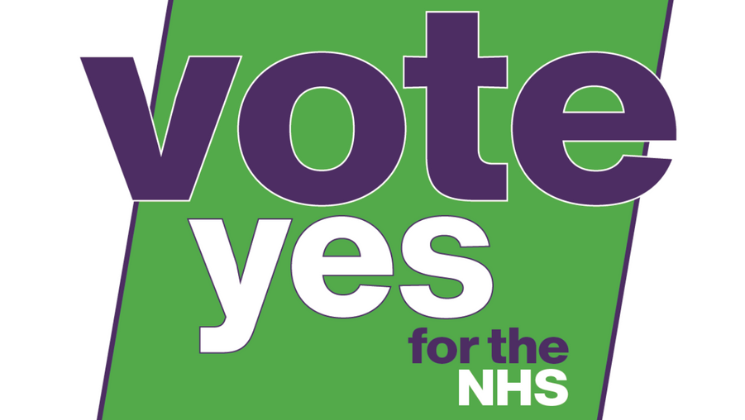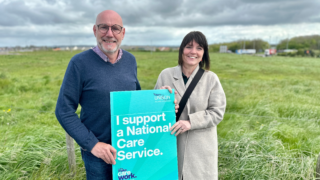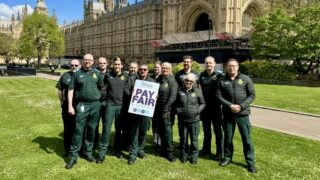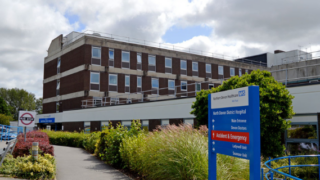Letters advising more than two hundred NHS employers across England that health staff, including paramedics, midwives, theatre staff, occupational therapists, porters and nurses, are to be balloted for strike action have been sent, says UNISON.
The union has also written to health secretary Therese Coffey urging her to meet and negotiate an improved pay award to avert action that could disrupt NHS services this winter.
UNISON has initiated a formal dispute after most NHS workers were given just a £1,400 wage rise for this year, falling way short of the inflation-busting increase health unions wanted.
Strike ballots for England, Wales and Northern Ireland are due to begin on 27 October and the union says this will “signal to the government and employers the strength of feeling behind UNISON’s key pay demands”.
UNISON says it is not too late for the government to think again and put pay right, an important first step in tackling the chronic staff shortages across the NHS.
The letter to the health secretary says: “Taking industrial action is a very serious move. NHS staff are only too aware that reducing workforce capacity, even for a short time, will have an impact on the delivery of services.
“But having exhausted other routes to prompt the government into action, many are concluding that withdrawing their labour this winter is the best way to help patients.”
The letter continues: “The tightening labour market means NHS staff have many more options for jobs with better pay and less stressful working conditions.
“The record and mounting treatment backlog, alongside further Covid surges, flu and other pressures expected to hit hard this winter, mean the damaging impact of this workforce crisis can only escalate.”
Commenting on the prospect of strike action across the NHS, UNISON head of health Sara Gorton said: “The backlog won’t reduce, nor waiting times and delays lessen unless the NHS can keep hold of its experienced employees and attract new people.
“A proper pay rise would help the NHS start tackling the growing staffing shortages hampering its ability to cut waiting lists and reduce ambulance delays.
“But disruption isn’t inevitable. Ministers could come up with a decent wage increase and a proper workforce plan. The ball is sitting in the government’s court.”







